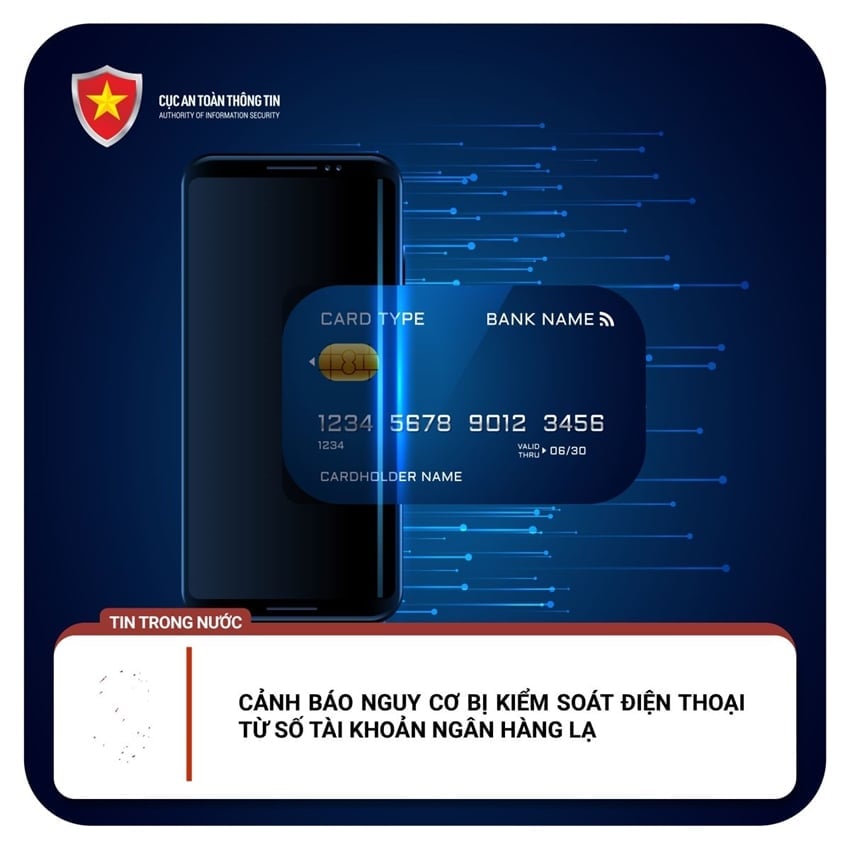By trying to log in to the bank's website and entering incorrect information multiple times, the subjects will lock the victim's account. At that time, they will pretend to be a bank representative and call, luring users to click on a link to download a fake application.
 |
When their accounts are locked, inexperienced users will easily panic and believe the scammers. They may provide the scammers with some personal information, login information or be tricked into installing malware. After penetrating the device, these malicious codes may request deep access to the device, from which the scammers can take control of the device and steal data, remotely monitor the device, and steal sensitive information such as passwords, OTP codes, and transfer money using biometric facial features on the user's phone.
This is a new, sophisticated and professional trick, the account number and phone number are often made public by many people, and two numbers or emails can be used to log in. In addition, this information is also sold on the data "black market" and there are many ways to collect it.
Regarding the above information, the Information Security Department recommends that users should note that when encountering problems with their bank accounts, they should go to the counter to do it directly or proactively contact the bank's official customer care channel. Users should absolutely not access strange links or download applications of unknown origin; do not provide personal information, bank account information, or OTP codes in any form.
In case of suspicion of being scammed, people need to immediately report to the bank or authorities for timely support, resolution and prevention.
Source: https://huengaynay.vn/kinh-te/canh-bao-chieu-tro-lua-dao-moi-kiem-soat-dien-thoai-tu-tai-khoan-ngan-hang-la-150682.html


















































Comment (0)